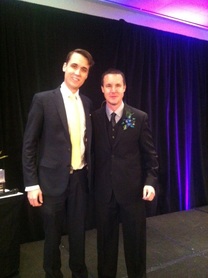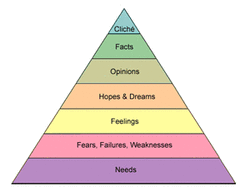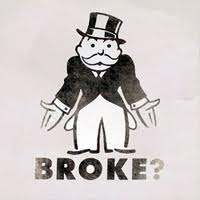
Freedomway.ca
facebook.com/stefanaarnio
https://twitter.com/stefanaarnio
http://ca.linkedin.com/in/stefanaarnio
Remember: Please share this article if you found it enjoyable!
What would you do if you had all of the money in the world? What is money anyways?
One of my favourite quotes about money/success/business is by Donald Trump:
“I wasn’t satisfied earning a good living. I wanted to make a statement”
What I love about this quote is that the money doesn't matter, the deals don't matter, the success doesn't matter, the lifestyle doesn't matter... What matters is the statement that is made by the work.
Great Artists make statements, for that is the purpose of Art. An artist produces art to make a statement, Donald Trump builds buildings to make a statement, in many ways Donald Trump is an artist.
Donald Trump certainly does not have to get out of bed in the morning and go to work to pay his mortgage or put food on the table. Necessities like food were never a concern for Trump. Life would be empty if he could not create through his work. A starving Artist is the same, he has no material possessions, money doesn't matter and his life is empty without creating through his work.
When you make a commitment to excellence and stand for something, others will be attracted to your message. In a roundabout way, making a statement is what branding is all about.
Today I was sitting in Starbucks with a couple potential Joint Venture Partners and we were interviewing potential contractors to flip houses with. After one candidate left I made the statement to my partners that the contractor was an old "has-been". After a few minutes of discussing the contractor's flaws, a man sitting at an adjacent who had been listening to us talk said to me "you have to have your own crews!"
I replied "I do have my own crew"
We started talking to the man and he said "you were really arrogant with that last contractor". We continued to talk to him and he said "you remind me of me when I was your age".
It turns out that the man who had been listening in on our interviews owns over 5500 rental units in Winnipeg and is one of the most successful investors in the city. We continued to chat for 30 minutes about the business of real estate and he invited myself and my partners to spend some time with him in the new year.
What is amazing about the experience was that if I had not made such a bold statement, we would not have been approached by the very successful investor at the adjacent table. The connection with one of the biggest investors in the city could be very important in the future and I would have never made the connection if I did not make a statement. If I had cold called this successful investor, he would not take my call. However, since he had observed me and saw what I stood for, he reached out to make the connection with me.
Like attracts like and birds of a feather flock together. Put up a flag, show people who you are and what you stand for and you will attract those who think like you do. People are magnets and we attract other people who are charged like us; this is why branding is so important.
Make a statement, make it strong, make it bold and stand by it.
If you don't stand for something, you'll fall for anything.
Thanks for reading,
By: Stefan Aarnio
Freedomway.ca
facebook.com/stefanaarnio
https://twitter.com/stefanaarnio
http://ca.linkedin.com/in/stefanaarnio
P.S: Please share this article if you found it enjoyable!








 RSS Feed
RSS Feed

